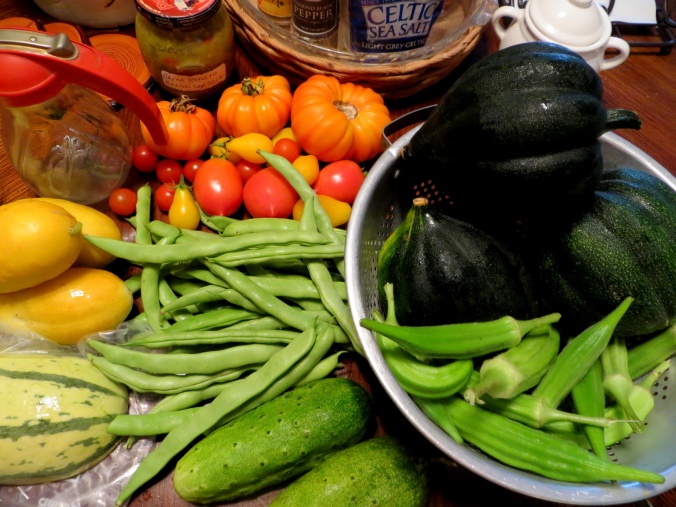
PC: Public Domain Pictures
Beyond a New Year’s Resolution…
I feel by this point in the year, I’m already over a New Year’s resolution. I’ve gone off-the-rails. Off a cliff, even. There’s no return by this point. Most resolutions or goals are not sustainable without having specific plans, benchmarks, and guidelines/expectations in place. For us though, we had two goals: eating food that makes us feel good and keeping a budget-savvy mind when purchasing food . We’ve been sticking with it. This entry’s a two-fer!
Disclaimer: I want to name the socioeconomic privilege where I am coming from on the rest of this entry. This is representative of my own experiences, not others’. I am especially mindful of the disparities where regional and/or social class differences limit access to healthy, fresh food, for millions of people in this country. Food deserts are a blight for this country and widespread hunger and malnutrition are huge problems in many parts of the world. It is something I try to retain a sensitivity and empathy towards. My goal from this post is: I am trying to challenge my mindset of trying to eat healthier, fresh food on a budget. I hope by voting with our wallets we can try to eliminate food-related waste and the processed foods that commonly are forced upon us due to systemic inequality. I really want to name that before I jump in any further.
Don’t try this at home…
When we started paring down at home with personal items, it also came up we wanted to start eating more healthy home-cooked meals together. It was an overall goal that helped us center at the end of the day around each other and a meal shared. I think this might be one instance where I’ll differ with The Minimalists’ views on diet. For example, we love bread (understatement), cheese (another understatement), and a sweet from time to time. We eat meat sparingly. Anywho, before we arrived at this goal our frequent routine was:
- Get home.
- Check what food we had in the pantry or cupboards that was convenient or easily prepared.
- If option #2 not appealing, go to our building’s dining hall (we live on a college campus).
- If the dining hall had a menu we were picky about (I think we all have those moments), find something locally nearby.
We collectively decided that this simply wasn’t working for us. In some ways, we could deplenish our food budget quickly if we weren’t paying attention. We agreed we could be more intentional about planning out meals, more budget-friendly, and have healthy, fresh food on hand. Then, if we were in a pinch, we could go to the dining hall instead of default on going out to eat. So our revised framework is:
- Allocate 75-80% of our monthly food budget to groceries.
- Plan meals ahead of time. Make foods that are nutritious, good tasting, and freeze well. For this, we usually make double batches of a recipe.
- When in a pinch, use the dining hall as a budget-friendly backup.
- Use our remaining 20-25% of our food budget on a nice meal out, for a special occasion, like a date night, or meeting with friends from out of town.
Do try this at home…
So what needs to change in our behaviors to make these goals come true? When brainstorming the menu, I’ve be trying to think of menu items where I’ll only need a few complementary ingredients based on what we already have on hand. We are making chicken enchiladas this week. We’ll have some leftover salsa and frozen chicken, and are planning to make chicken barley chili the week after. By preparing meals that have overlapping ingredients, I can keep a budget conscious approach when building our menu.
When I pay a visit to the grocery, I’m going to stick try and stick to what is on the list. I mean, really try. I won’t head there on an empty stomach, and I’ll try to avoid going after work. Have you ever heard of decision fatigue? When we’re tired, it’s when we’re most susceptible to impulse buys. We’ve already made a lot of decisions by this point, and we can be really persuaded on buying things we don’t need. So, my approach is, get up and head to our local grocer in the morning, usually around opening. I’m a morning person. I used to work at the grocery in question (it rocks and so do the people there) the crowd is small, the store is stocked, and I’m in a mindset of getting in and out. It’s a great way to start the day.
The final thing we’ve been paying attention to is what’s in our pantry and making sure we’re using food before it expires or goes bad. Wastefulness is something that I really want to diminish as an aspiring minimalist. We’re going to eat through the fresh fish in our freezer my wife’s father has given us. I don’t want to see greens wilt or rot in our fridge because we haven’t eaten them in a timely manner. We both noticed that we’ll get on a kick for something — leafy green salads for example. We’ll eat them a bunch, then get sick of it a week or two later and things will slowly go to waste. Lesson: keep things in moderation, always.
I hope this helps us live into a more minimalist and mindful approach to our diet. Between enjoying homemade meals together, eating lots of fruits, veggies, and nutrient-rich foods, and keeping it all in a framework of our budget, I hope this is something you’ve got similar ideas to share. What do you all do to try and keep a minimalist approach to your diet and the foods you eat? Please let me know your thoughts in comments, if you’d like.
As always, thanks for reading!
Respectfully Yours,
Blu